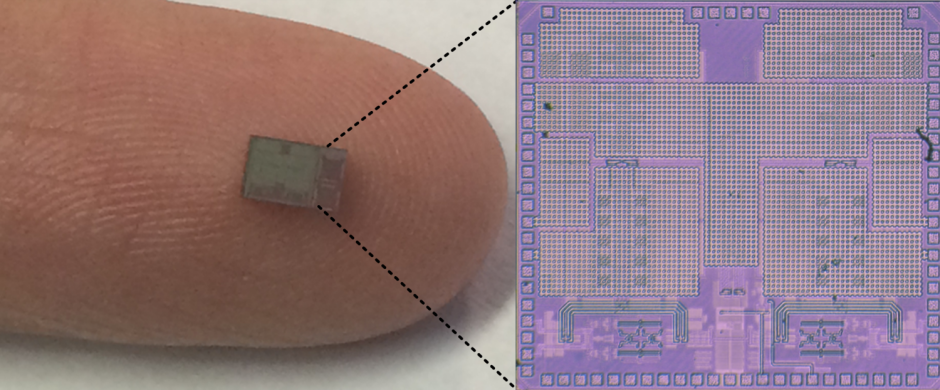Novel chip technology could free bandwidth for autonomous cars
US researchers demonstrate chip-based method for wireless two-way communication

Ever more technologies are depending on data transmission, from 5G telephony to communication of autonomous cars with each other and their surrounding infrastructure, but the airwaves are getting crowded, and the bandwidth available for that communication is becoming scarce.
A team of electronics engineers at Columbia University in New York has now developed a system that, for the first time, can be integrated onto a standard microchip to get around this problem.
The device the team has developed is called a circulator, and it enables signals to travel into and out of the device along different paths. This is known as non-reciprocal action, and previously has only been achievable with bulky devices made from special magnetic materials that are too expensive for consumer electronics.
In February of this year, Harish Krishnaswamy’s group at Columbia demonstrated the first non-magnetic non-reciprocal components on silicon chips, and has now published a paper in Nature Communications demonstrating the principles behind the device.
Register now to continue reading
Thanks for visiting The Engineer. You’ve now reached your monthly limit of news stories. Register for free to unlock unlimited access to all of our news coverage, as well as premium content including opinion, in-depth features and special reports.
Benefits of registering
-
In-depth insights and coverage of key emerging trends
-
Unrestricted access to special reports throughout the year
-
Daily technology news delivered straight to your inbox










UK Enters ‘Golden Age of Nuclear’
The delay (nearly 8 years) in getting approval for the Rolls-Royce SMR is most worrying. Signifies a torpid and expensive system that is quite onerous...